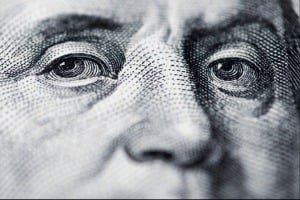China’s gold-buying spree could be the straw that breaks the dollar’s back

On top of this, the US may be its own worst enemy. The recent strength of the economy and markets partly reflects a massive fiscal stimulus begun under President Trump and continued under President Biden.
This is something that only a country issuing in the world’s dominant reserve currency could get away with, but the patience of international investors cannot be taken for granted.
The traditional confidence in US institutions and policymaking is at risk, too. There are major question marks over both leading candidates in this November’s presidential elections. At least one (take your pick) is a global laughing stock.
Either looks set to lurch further towards a protectionist trade war, raising tensions further with China.
This could play out in many different ways. It is possible that the dominance of the US dollar continues to be eroded but this simply takes the form of a gradual rebalancing towards other Western currencies, including the euro, as well as Australian and Canadian dollars.
The Japanese yen now looks remarkably cheap, with bond yields finally starting to rise to levels that might attract international buyers. Even sterling still accounts for a larger share of global foreign currency reserves (about 5pc ) than China’s renminbi (less than 3pc). The pool of investable assets in China itself remains small.
The scope to evade sanctions by diversifying out of the dollar is also limited by the likelihood that allies of the US would coordinate their response to a new threat from China, in the same way they did to Russia’s invasion of Ukraine.
The gold market is simply not large enough to absorb all of the capital that China has parked overseas.
But in the worst case, a sharp fall in the value of the dollar could have substantial negative effects elsewhere in the West, including spillovers into higher interest rates in the UK and the rest of Europe.
Investors therefore need to stay alert to geopolitical risks – and keep watching the signals from Beijing.
Julian Jessop is an independent economist. Roger Bootle is away.
Source link





